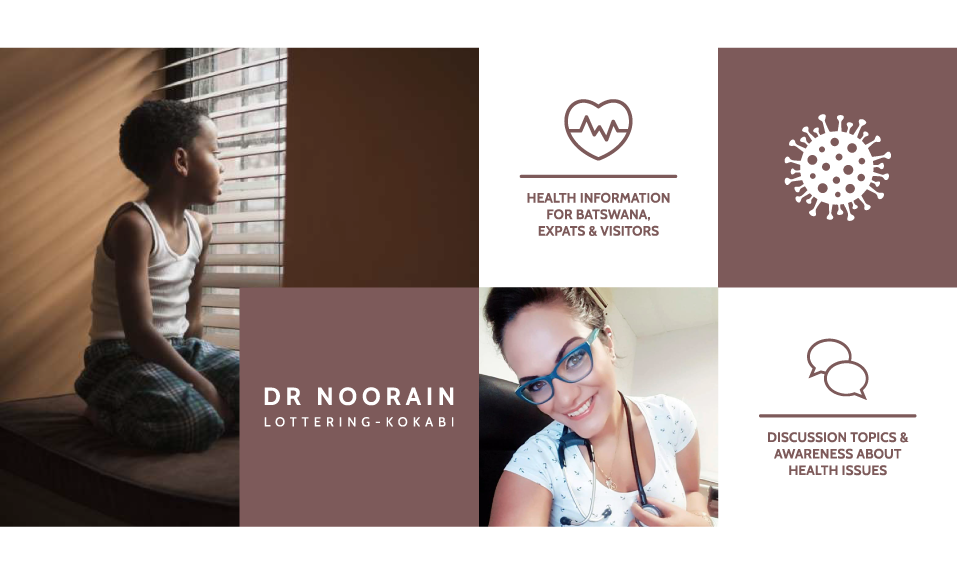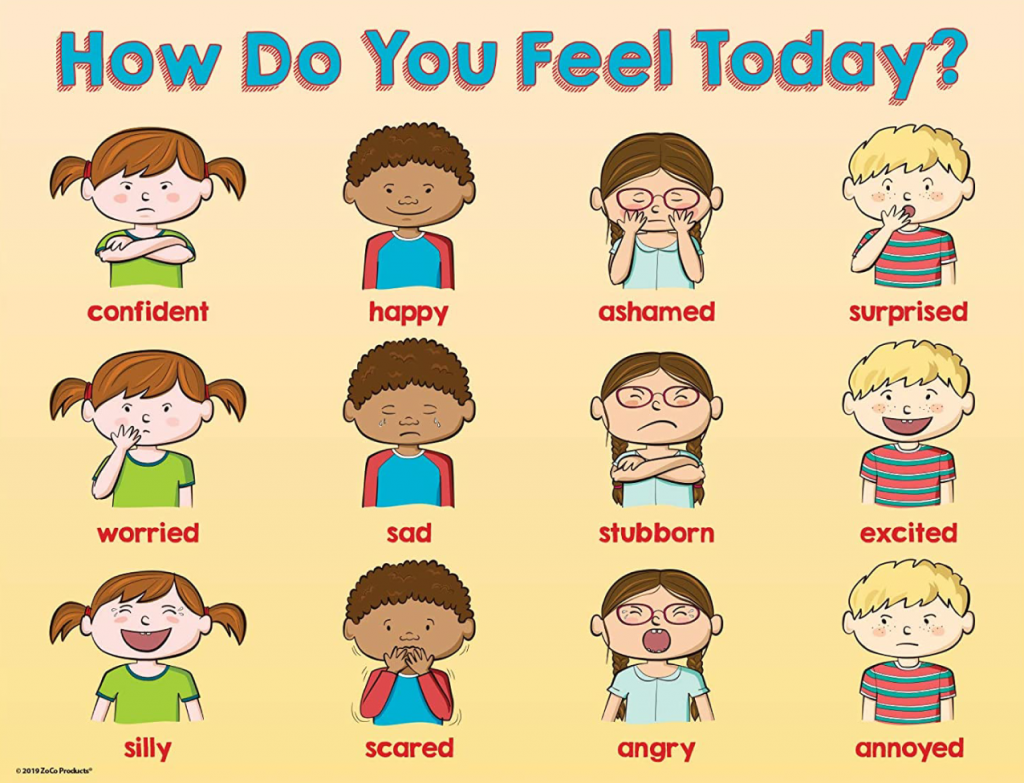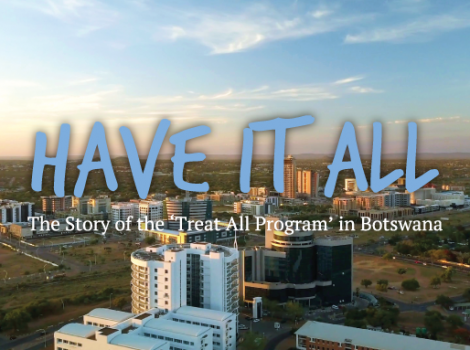
In the blink of an eye, our lives were thrown into chaos, the news of mass deaths becoming a daily occurrence, all of us watching the news, scrolling social media for new updates on how Covid-19 has destroyed lives, shut down countries and life as we know it changed. As adults, we felt caught between being calm and being filled with worry as Covid-19 made its way closer and closer to our doorsteps.
Suddenly, businesses were closed, people were told to work from home, schools shut down. Life came to a standstill. As adults, we found ourselves having to adjust to this new way of life despite being filled with frustration, anxiety, among other emotions.
In the midst of all of this, our little humans, the children found their routines halted abruptly; they found their whole world changing. As little as they are, their minds have been forced to process life alterations that usually occur gradually as they grow up. In a simple questionnaire I offered families with kids between the ages of 2-10-years-old, it was truly remarkable to find out how much these tiny people have processed while at the same time, heart-wrenching to discover the toll it’s taking on them.
The questionnaire found that most parents spoke openly with their children about Covid-19, which is fantastic as children have every right to truthful information. However, many parents also admitted to openly having feelings of anxiety or worry themselves, which can be concerning as these little humans possess the distinct ability to pick up on parental responses and in turn, may manifest these same feelings.
These feelings of anxiety and worry manifest in very different ways in children as opposed to adults. These include but are not limited to:
- Being extra clingy (found to be most common during this pandemic, according to the questionnaire)
- Complaints of headaches/ stomach aches
- Anger/tantrums
- Defiance
- Lack of focus/lack of interest
- Nail biting
- Appetite Changes
- Fear of getting sick or family members getting sick
It is also important to note that many people assume that children under the age of five cannot comprehend what is happening in the world or what a country lockdown means. While it is true that they cannot fully grasp the nitty-gritty of it all, these precious little cherubs are fully aware that life has not only changed but it has changed due to something “bad” called Covid-19 or Coronavirus. The questionnaire revealed children as young as two were able to articulate;
Coronavirus is a “bad thing” and lockdown means that they do not get to go anywhere or see friends nor family, expressing feelings of sadness or fear towards Covid-19. And if granted a wish, they would want Covid-19 to go far away so that they could play with friends again, see family again and go back to school.
Captivatingly, it was fundamentally clear, how much school and social interaction means to children. While they do enjoy having parents home with them, having family time and identify time with family as a source of their happiness, they also crave outside interaction with other children their age and extended family members, to be in school learning new things or even just being able to explore. With that said, it is important to mention that while children are desperately craving social interaction, they might also still have anxiety associated with same. Not wanting other children to come close to them, touch them or even becoming obsessed with hand-washing for both themselves and others can identify this.
Before we get into helpful tips for parents on how to help their kids adjust to Covid-19, the lockdown and life changes, it must be noted that the effects are vastly different for different children. Those that come from impoverished backgrounds or abusive households already face a volatile, perilous reality and with Covid-19, they now unknowingly have an added enemy working against them thriving as well as their growth and survival. This is a critical time for not only health services or social services to be hyper-vigilant to child abuse or impoverished, starving children but it is also a critical time for the community as a whole to have an awareness of same, looking out for others in their neighbourhood and alerting authorities as needed.
How can you help your child understand Covid-19 and cope with its effects?
Helping children understand Covid-19 and the toll it has taken on them is vital. Helping them cope with anxiety and worry now will aid in preventing them from struggling to cope later in life with anxiety or panic attacks. I urge parents and caregivers not to ever dismiss children with statements such as “well, they are too young to understand so it doesn’t matter.”
It does matter; it matters very much to their development and growth as functional human beings. With that said, if your child is content or too young there is no need to scare them. But it is still important not to leave them oblivious to what is happening in the world and to still talk to them about hygienic practices and good social distancing practices.
1. Openly talk to your child and see it from their perspective
- As mentioned earlier, these little minds do have the ability to perceive what Covid-19 is, what a lockdown is and have developed feelings towards both. Ask questions about what they think Covid-19 is and how it makes them feel.
- Do not pressure the child but allow them to communicate in a way most comfortable for them.
- Some children may find it hard to verbally communicate their thoughts. Try allowing them to draw or use toys to express themselves. You may find they will use analogies such as describing Covid-19 as a snake or something scary. Although humorous, it is, in fact, a revelation of how they feel towards/perceive Covid-19.
- If your child asks you a question that you do not know the answer to, instead of guessing, tell your child that together you can look for the answer.
2. Explain to your child what Covid-19 is in a non-fearful, friendly way
- While children do have a right to the truth and information, the adults in their lives have to ensure that they receive this information in a calm, non-alarming manner.
- Simplify explanations to their level of understanding while being vigilant of their body language, facial and verbal expressions. For example, you may find your child shrugs and looks away when asked about friends. This could indicate they miss their friends and don’t know how to process that feeling. Alternatively, it could mean disregard.
- Use child-friendly animation videos and stories that explain Covid-19 and its effects. Below is a helpful video link that is simple, fun and educational. It explains some good hygiene and social distancing practices AND includes a fun song:
3. Teach them about protecting themselves and their friends in a fun, friendly manner
It is of the utmost importance that parents do not encourage paranoia in children. This includes not using statements such “we can’t visit people because we will get corona,” or using it as a threat, “you want to go to KFC, do you want to get corona?” It is best to make it fun reminding them :
- –That regular hand washing is important
- Covering their mouth and nose with their elbow when they sneeze or cough and throwing their used tissues into a bin
- –If someone is sick (coughing or sneezing), we can still talk to them but we can’t get too close until they feel better
- –If they feel sick, they should tell parents and shouldn’t get too close to their friends until they feel better
- People are still people, there is no need to be afraid of people and we can still laugh, talk and play with others
- Covid-19 has nothing to do with race and we should not bully or tease anyone about having Covid-19
4. Reassurance, reassurance, reassurance
Children may overhear conversations between adults, the news on the radio or see images on the TV which may spark anxiety. This can lead to them wondering if they or their families are in danger. Help your child cope with this by allowing them to “keep control”. This means:
Routines: children thrive on routine; it is worth generating a timetable with the child for day-to-day activities incorporating educational activities, physical exercises, religious education (if so inclined), playtime, relaxation time, meal times and sleep time.

- Reminding them that by observing correct hygienic practices they protect themselves and others from getting sick.
- Share joyful stories using pictures about the doctors, nurses, scientists, police etc. who are helping to stop Covid-19 and we can help them too by these little practices.
- Let them know that is 100% okay to feel sad, stressed, or angry. Everyone does. Allowing them to recognise these feelings and know that stressful times come and go can help children build resilience. You can even utilise a feelings chart to help them process these feelings.
- Let them know that is 100% okay to feel sad stressed or angry. Everyone does. Allowing them to recognise these feelings, that stressful times come and go can help children build resilience. You can even utilise a feelings chart to help them process these feelings.

5. Keep calm, take care of yourself and be a role model
- As mentioned previously, children are able to recognise the emotions of the adults around them (adults do not only include the child’s parents but ANY adult the child is exposed to). If children observe adults being overwhelmed with worry and anxiety at the prospect of contracting Covid19 and/or dying or even just emotional reactions to Covid-19 news, they question their own safety and wellbeing, which in turn leads them to developing anxiety.
- If a child does not observe panic around them, it is highly unlikely that they will develop panic/fears/worries. Instead, they will handle it as per the role model in front of them.
- This is not to say that as a parent, you should not have feelings of anxiety or suppress them. You are human and have every right to those feelings, especially in times of strife.
- If you find yourself feeling overwhelmed, worried, anxious, take some time for yourself and reach out to a friend, your doctor or a psychologist.
- Take time to do things that help you relax.
- Avoid social media and news for a few days or follow only that which is relevant to your country.
This pandemic has thrown the world off course, no matter which space on the map you occupy, Covid-19 has found its way into your life. Governments, scientists and doctors among others have all been left stumped, frantically searching for ways and methods to contain, treat and cure this ruthless virus. It has left people disoriented and craving normalcy. Please remember that for every one of us; man, woman, child, old, young, rich, poor, it is okay to not be okay.
Let us be gentle and patient with ourselves and with each other. Moreover, if anything else, just remember that the dawn of a new day is set to arise. Until then, keep safe.
By YourBotswana writer:
Dr. Noorain Lottering-Kokabi, BMSc, MBBS (UWI MONA)
Born in May 1989, Dr Noorain hails from Gaborone Botswana. She completed her Pre-Med at the University of Botswana and went on to attain her BMSc and MBBS degrees at The University of The West Indies in Kingston Jamaica.
Having practised medicine in both the Caribbean and Botswana, she has been exposed to an array of conditions and ailments that have in turn widened her scope of expertise. She is also involved in multiple philanthropic projects that aim to equip youths with relevant life skills and tools they need throughout their lives.
A young, diligent, enthusiastic professional with a formidable hunger to continuously seek further knowledge, both in alternative and modern medicine, Dr. Noorain aims to better the healthcare in the communities she serves.
She currently works in community health providing first line care for the community as a whole. Her current position has enabled her to manage both common and complex cases. These cases range from the common cold/flu, bites to mental health, uncontrolled diabetes, hypertension, tuberculosis and HIV (along with the associated complications). Having worked in the Caribbean, Dr. Noorain is very familiar with the treatment of tropical diseases and severe symptoms that may arise from such diseases.
Dr. Noorain provides quality outpatient care ensuring that her patients are fully educated on their respective illness. After all a patient that is well educated on their illness is more likely to comply with medical protocols and prevention strategies, hence reducing potential mortality and morbidity statistics, which reflects a healthy and happier Botswana.
Dr Noorain is a young, career driven, passionate, culturally and medically diverse professional. She is excited about her collaboration with YourBotswana, hoping to use the platform to educate citizens and visitors alike on current health issues in Botswana.




